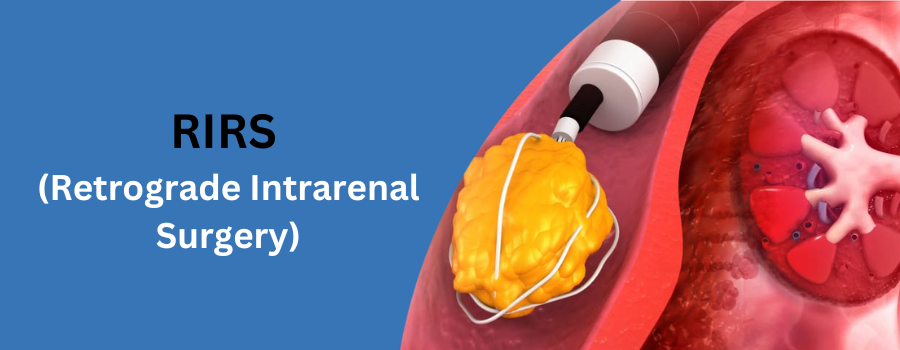Retrograde Intrarenal Surgery (RIRS) is a minimally invasive procedure used primarily to treat kidney stones. This technique has gained popularity due to its effectiveness and a range of advantages over traditional surgical methods. In this article, we will explore the key benefits of RIRS surgery and why it might be a preferred option for treating certain kidney stone conditions.
1. Minimally Invasive Procedure
One of the biggest advantages of RIRS is that it is a minimally invasive procedure. Unlike open surgery or even percutaneous nephrolithotomy (PCNL), RIRS does not require large incisions. Instead, it uses a small endoscope (the ureteroscope) that is inserted through the natural urinary tract. This approach significantly reduces the physical trauma to the body and allows for a quicker recovery compared to more invasive surgical methods.
2. Reduced Recovery Time
Due to its minimally invasive nature, RIRS often results in a shorter recovery time. Most patients can return to their normal activities much faster than with traditional surgery. Typically, the procedure is done on an outpatient basis, meaning patients can go home the same day or the next day after the surgery. This quick recovery is particularly beneficial for those with busy schedules or other commitments.
3. Lower Risk of Complications
RIRS surgery is associated with a lower risk of complications compared to more invasive procedures. Because it is performed through natural orifices and does not require significant physical intervention, the chances of complications such as infections, bleeding, or damage to surrounding organs are reduced. Additionally, the procedure minimizes the risk of postoperative pain and discomfort.
4. Effective for Small to Medium-Sized Stones
RIRS is highly effective for treating small to medium-sized kidney stones, especially those located in the renal pelvis or upper ureter. The advanced technology used in RIRS allows for precise stone removal or fragmentation, which often results in a successful outcome without the need for additional procedures.
5. No Need for External Incisions
Unlike open surgeries or some other methods like PCNL, RIRS does not require external incisions. This means there is no need for stitches or prolonged wound care post-surgery. The endoscope is inserted through the urethra, bladder, and into the ureter and kidney, making the procedure both less invasive and more comfortable for patients.
6. Decreased Postoperative Pain
Patients undergoing RIRS typically experience less postoperative pain compared to those who undergo traditional open surgeries or even laparoscopic procedures. The minimal physical disruption during the surgery results in less trauma to the body and reduces the amount of pain experienced during the recovery period.
7. Preservation of Kidney Function
RIRS helps to maintain kidney function by addressing the problem without causing significant damage to the kidney. This preservation of kidney function is particularly important for patients with pre-existing kidney issues or those at risk of kidney damage from more invasive procedures.
8. Higher Stone-Free Rates
Recent studies indicate that RIRS can offer high stone-free rates, meaning that most patients are able to pass or have their stones completely removed after the procedure. This effectiveness makes RIRS a reliable option for stone management.
9. Patient-Friendly Procedure
RIRS is designed to be as patient-friendly as possible. The use of small instruments and the minimally invasive nature of the procedure mean that patients often have a more comfortable experience both during and after the surgery. Additionally, the use of advanced imaging techniques helps to target the stones more precisely.
10. Less Need for Postoperative Procedures
Because of the high success rate and minimal invasiveness of RIRS, there is often less need for follow-up procedures compared to more invasive surgical methods. Most patients achieve satisfactory outcomes with the initial RIRS treatment, reducing the likelihood of additional interventions.
Conclusion
Retrograde Intrarenal Surgery (RIRS) offers a range of advantages that make it a compelling choice for the treatment of kidney stones. From being minimally invasive and having a lower risk of complications to ensuring a faster recovery and high effectiveness, RIRS represents a modern and patient-friendly approach to kidney stone management. As with any medical procedure, it is essential to discuss the options with a healthcare professional to determine the best treatment plan based on individual circumstances.
If you’re considering RIRS surgery or want to learn more, consult with a urologist who can provide personalized advice and discuss how this innovative procedure might be the right choice for you.






Comments